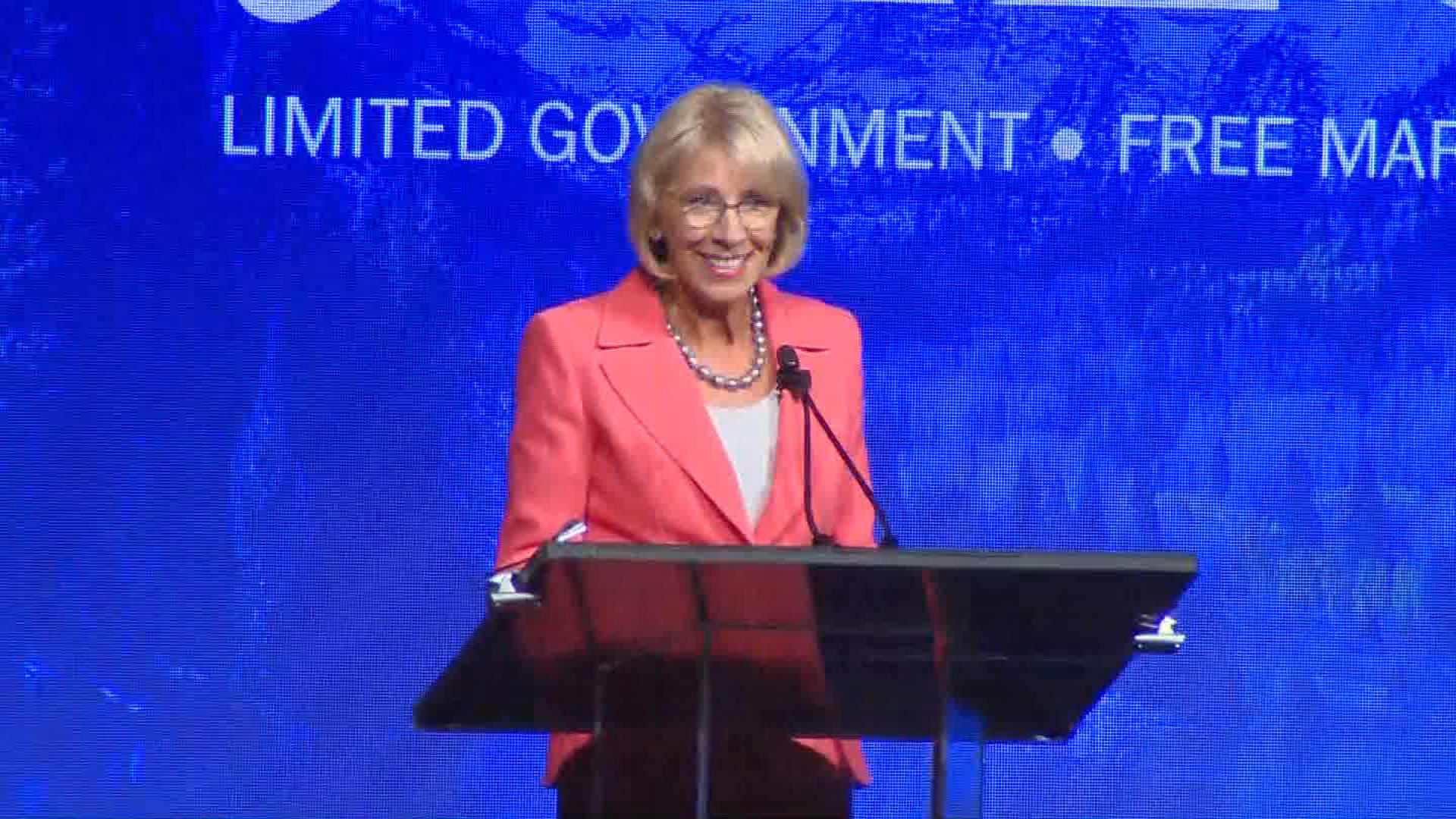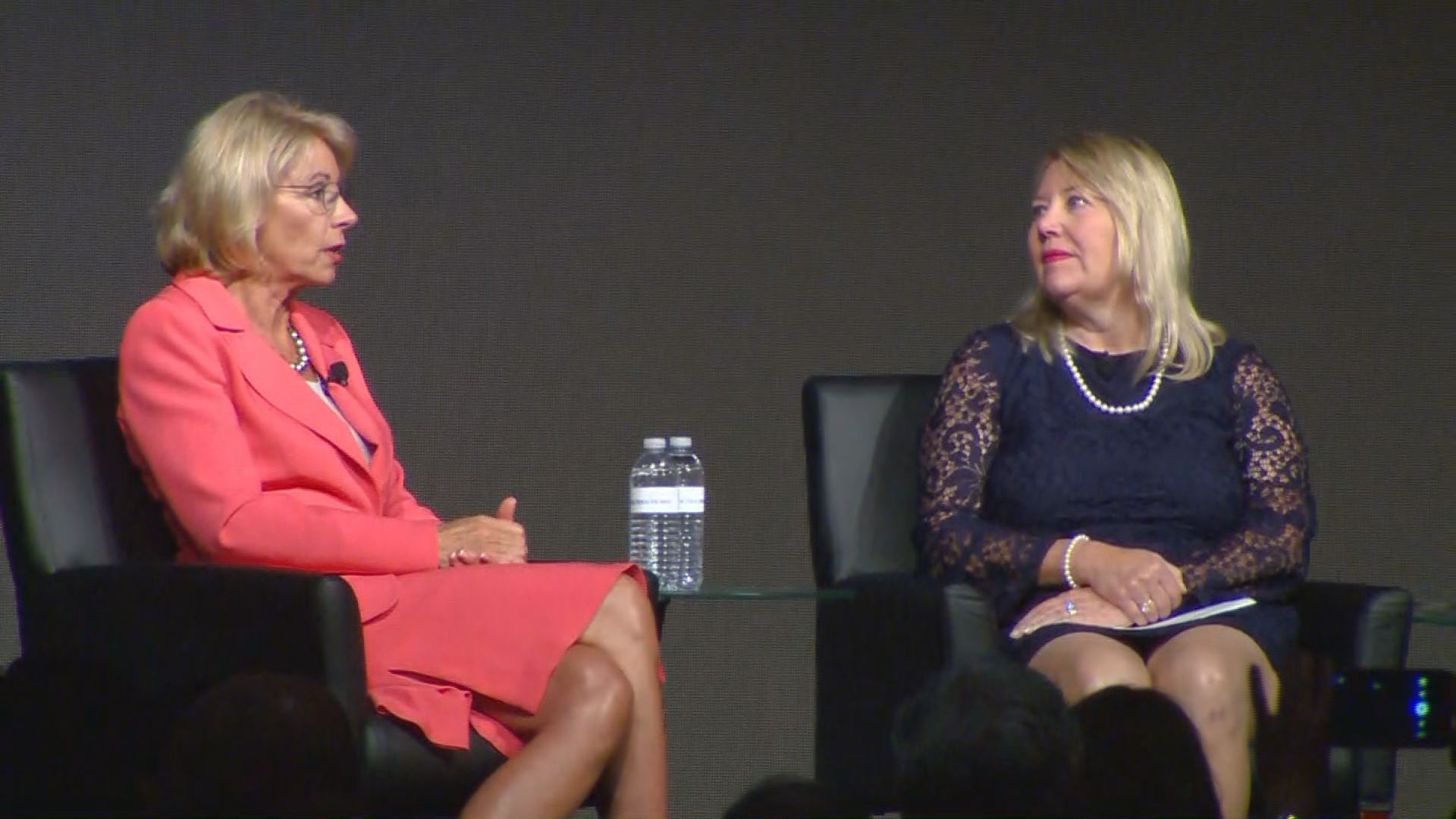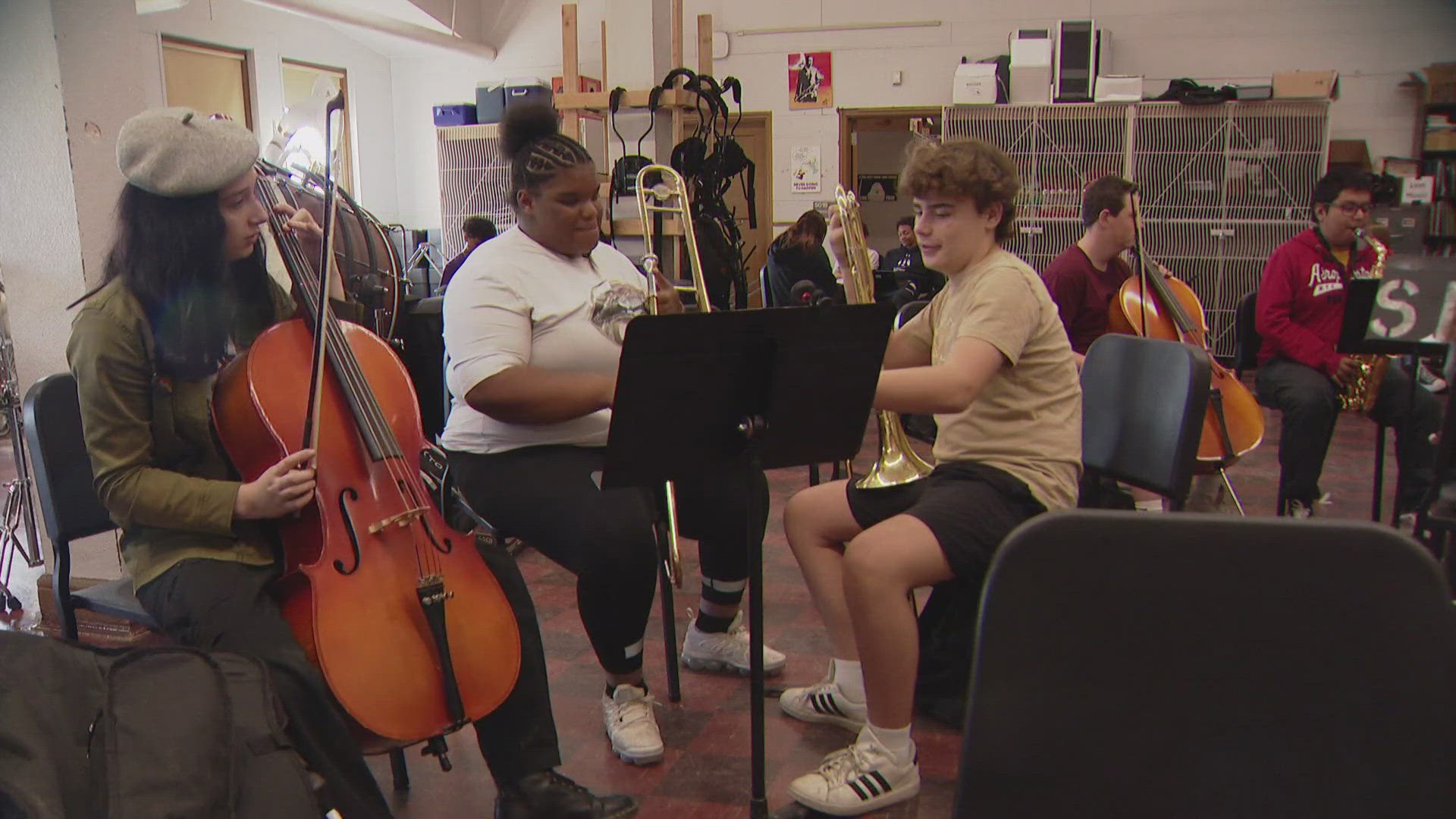Secretary of Education Betsy DeVos came to Colorado to speak at a conference of legislators from around the country.
The conference was held by ALEC -- the American Legislative Exchange Council. It bills itself as a nonpartisan, voluntary membership organization of state legislators.
Arizona state legislator Debbie Lesko asked the secretary questions after DeVos' remarks.

Q: One of ALEC’s three core principles is federalism. Under the last administration, the role of the department of education expanded greatly, while severely limiting state sovereignty and decisions regarding education.
What are some of the ways your department plans to give power back to states, local communities over education?
A: It is true that the last eight years took us in a dramatically different direction than all of you, and myself included, in this room view as the best way for us to address the problems.
One of the most important areas that we will be able to evidence this belief that states are the best equipped to address the situations in their states is through the proper implementation of the Every Student Succeeds Act in the K-12 sphere. I know that all of you who are legislators in this room have been working, I hope you’ve been working, with others in your state to put your plans together.
I’m truly hopeful and as I said in my remarks, states will bring forward new creative approaches to addressing the unique challenges that each of your states faces.
Let’s face it. Every state has a very different culture and personality and very different needs to address, and I think it will be enlightening for all of us to see how some of the new approaches do work. And we were talking earlier about the orientation around the compliance mentality and I do really encourage you to the extent that you are able to, to help break that down to get past that idea that you have to look the federal government to put up the bumpers or the guardrails in any greater sense than is already actually there in law. And it is federalism around education that I highly value and honor and we want to see states take up the mantle and do what they can do best.
I encourage you to really provide and afford that same kind of flexibility to those closest to the students they are serving right at the school building level and most importantly parental level.
Q: In a recent speech, you said that you firmly believe that every state should provide choice and embrace opportunity in education but those are decisions the state must make because states are our best laboratories in democracy, why do you believe that it is so important for states to take lead on school choice?
A: I think those who are closest to the students are best able to address their needs, and I do firmly believe that every state should empower parents to make the right choice for their child’s education. But I believe that states have to make this decision and that we should not mandate a new program or a one-size fits all program at the federal level.
The overreach in the previous administration should not be countered by overreach in this administration. I want to encourage states and to the extent I can in this role really work with governors and legislators in individual states to pursue this path of choice, giving parents more choices. I stand ready to do so.
I think we’re going to see the results of robust programs, we’re also going to see the results of programs that are politically safe but not particularly very large scaled and I predict that those that pursue the most robust choices and the greatest opportunities for parents and students are going to be the most successful in the near term on that.
Q: One of the things that critics claim is that school choices programs only help rich people. What’s your response to that?
A: That’s patently false. Wealthy people already have choices, they’re making choices every day, every year by moving somewhere- where they determine the schools that are right for their children or paying tuition if they haven’t moved somewhere.
And so my focus over these 30 years has really been to help those who are least empowered, those who can’t move, those who can’t afford to pay tuition, to have the same kind of choices that I and my husband have had for our children and that I know many of us in this room have had, and frankly some of the most vocal opponents to this, I believe are totally hypocritical on this because they too have made those choices because they have the economic means to do so. I just dismiss that as a patently false argument.
Q: Freedom of speech has been under fire on campuses, and in many universities have adopted extremely PC culture. What can your department do to alleviate issues in public universities and bring campuses back to the open minded institutions they used to be? In addition, what can and should state legislators do who are often responsible for funding public universities?
A: We have seen far too many cases in intolerance towards listening to and at least hearing from others that have different perspectives than ours, and I think that’s one of the most valuable parts of a higher education is to dialog with and meet those who don’t come from the same perspective that you do and to have conversation about that and often debate.
So it is a very critical and important issue. I think we all have a role to play in reversing the trend that we’ve seen- I think we need to speak up and feel confident in doing so and calling forth a civility and openness to that kind of dialogue. I think we need to be talking to our young people about the value of learning from others who don’t agree with us on everything and respecting their opinions. You don’t have to agree with them but at least we should be able to have civil discourse around them.
For state legislators, we all have the opportunity to use our bully pulpits to talk about these things.


